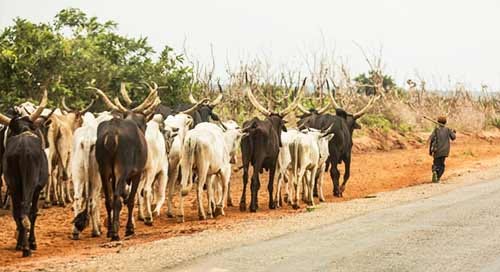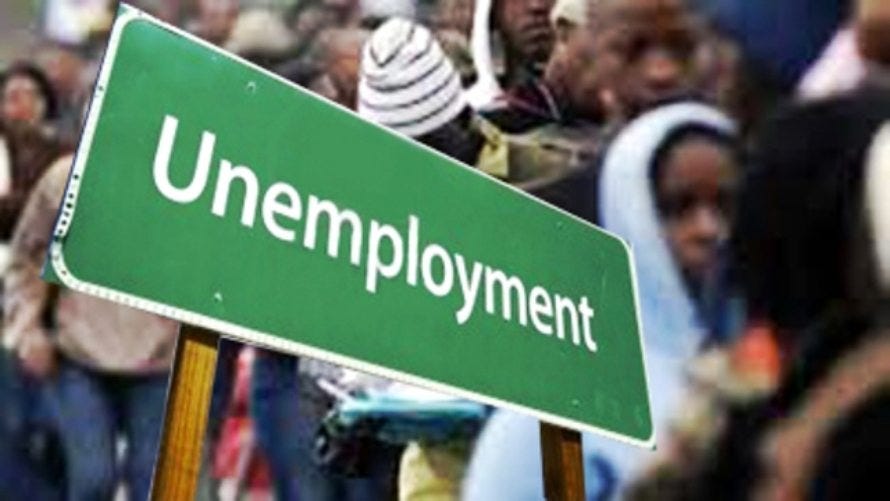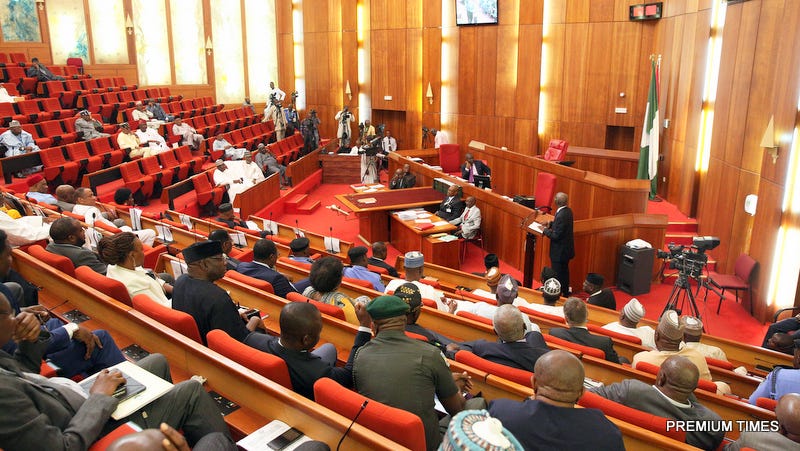Wednesday briefing: The problem with banning open grazing
+ Covid unemployment & sentencing kidnappers
* The Naira/Dollar rate was calculated by averaging buying rates from several Nigerian FinTech startups.
Good morning.
We are opening with a brief discussion on the open-grazing ban in Nigeria. This is a controversial one and I’ll love to know what you think. To ban or not to ban?
There’s also time to look at some Covid unemployment numbers and bills being processed at the National Assembly.
El-Rufai speaks on open-grazing ban
Kaduna State Governor, Nasir El-Rufai on Tuesday described the decision to ban open grazing across the South as unrealistic.
He wasn’t advocating for the perpetuation of open grazing, which has been declared obsolete even by Northern Governors.
El-Rufai’s argument is that moving from open grazing to the preferred method - ranching - will not happen overnight.
“We have to have a plan; we have to have resources and we have to implement it sensibly,” he said. “It is not a matter of populist legislation or saying tomorrow this or that. It is not a solution. We have taken a position as northern state governors and we are implementing that.”
He added that Kaduna State is building a ranch to centralise herders which will cost about N10 billion.
Context: Years of violent clashes between herders and farmers have prompted calls for the restriction of cattle movement across the country. But herders, mostly Fulanis, will have to radically transform a proud nomadic culture to adopt ranching. Nigerians, mostly from the North, have asked the federal government to support herders through the ceding of ‘grazing reserves’ and allocation of funds. But many southerners believe cattle rearing is a private business and the cost of setting up ranches should be mostly borne by the herdsmen involved.
History: There is little evidence that a ban on open grazing works, especially in conflict hotspots. Benue State, which has seen some of the deadliest farmer-herders conflicts, passed a law prohibiting open grazing in 2017. But, since then, the violence has only escalated.
What next: Any long-lasting solution to the conflict will hinge on a transparent dialogue between stakeholders and the willingness to compromise.
Ondo State: After the prohibition of open-grazing, herders in the southern state say they have embraced the feedlot operational system.
How the pandemic sacked Nigerian workers
About 20 percent of full-time workers in Nigeria lost their jobs due to the Covid pandemic in 2020, the National Bureau of Statistics said in a report released on Tuesday.
No surprises here. Millions of workers also lost their jobs in the US and EU due to the pandemic. Sadly, unemployed Nigerians don’t have the government safety net available to their counterparts in the developed world.
According to the NBS report, which was compiled in collaboration with the United Nations Development Programme (UNDP), the pandemic led to an increase in the unemployment rate, from 27 percent in Q2 2020 to 33 percent in Q4 2020.
Okonjo-Iweala: The WTO boss has reiterated her criticism of the global inequity in accessing Covid vaccines. “The fact that on the African continent, less than four percent of us have been vaccinated, whereas in the rich countries, you know, close to 50 percent have been vaccinated, is not something that really is good for the world,” she said.
Obadiah Mailafia: The University of Abuja Teaching Hospital says the former Deputy CBN Governor died due to complications triggered by Covid.
Corruption: The federal government says it is aware some health workers are involved in the selling of fake Covid vaccination cards and is ready to clamp down.
Lawmakers seek life imprisonment for kidnapping
A bill that will allow life imprisonment sentencing for kidnapping crimes has passed the second reading in the Senate.
The highest term for kidnapping in the current criminal and penal code is 10 years.
“The light punishment against these offenses has not helped in deterring the spate of abductions and kidnappings that have now become prevalent in the country,” bill sponsor and Ogun State Senator, Ibikunle Amosun said.
Emergency: Meanwhile, the Senate has passed a bill to establish ‘112’ as the primary, nationwide, and toll-free emergency number.
Health: The red chamber has also passed a bill seeking to control and manage sickle cell anaemia, the most ubiquitous genetic disease in Nigeria.
Security: A bill that will exempt members of the Nigeria Police Force from the contributory pension scheme and boost the retirement package of officers has passed second reading at the House of Representatives.
What else is happening?
Nnamdi Kanu: The federal government failed to show up at the hearing of a case filed by the IPOB leader in the Abia State High Court. The suit, separate from the DSS case against Kanu in an Abuja High Court, has been adjourned to October 7.
Digital taxes: The Federal Inland Revenue Service has been mandated to ensure that digital transactions are taxed, the Secretary to the Government of the Federation, Boss Mustapha, said on Tuesday.
Petroleum Industry Act: President Muhammadu Buhari has asked the Senate to amend the new act, in part to reflect Nigeria’s federal character.
Diplomacy: Former President Olusegun Obasanjo is on a tour of the Horn of Africa region as he begins his new role as an African Union High Representative.
Resource control: The Supreme Court has fixed November 1 for a definite hearing in the legal battle between Rivers and Imo states over the ownership of 17 oil wells.
Anambra: A Persons with Disabilities group has asked INEC to provide sign language interpreters at polling units (PUs) and registration centres (RCs) for the November 6 governorship election.
Copyright: Top Nollywood actors picketed Radisson Blue Hotel in Ikeja on Tuesday over unpaid audio-visual content royalties.
And that’s it for today. Catch you again tomorrow.







